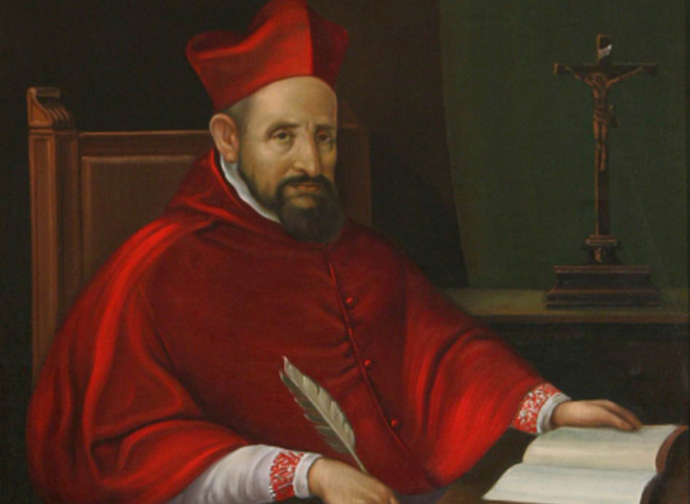Saint Robert Bellarmine
He was one of the most erudite men of his time, a strenuous defender of Catholic orthodoxy after the divisions caused by the Protestant Reformation

Author of ascetic, pastoral and theological works that earned him the title of Doctor of the Church, Saint Robert Bellarmine (1542-1621) was one of the most erudite men of his time, a strenuous defender of Catholic orthodoxy after the divisions caused by the Protestant Reformation. Moved by charity both in helping the poor - to whom he gave everything - and in doctrinal disputes, he was entrusted with the chair of Controversies (i.e. Apologetics) at the Roman College. Here he had among his pupils the young Aloysius Gonzaga (1568-1591), whom he assisted on his deathbed and from whom he drew inspiration to write The art of dying a good death.
His lectures were subsequently incorporated into Controversies, a work whose resonance in Europe was such that the Protestants set up special chairs in an attempt to respond to the Jesuit's solid arguments. He was involved in preparing the case against Giordano Bruno, whom he tried to save by convincing him to abjure his heretical arguments. He also played a role in the first clarification of Galileo Galilei with the Holy Office, where the scientist went spontaneously at the end of 1615 and a few months later he had to admit that Copernicus' heliocentrism (whose treatise is dedicated to Pope Paul III, who encouraged him to publish it) still had the status of a hypothesis not proved according to the scientific method.
He wrote A Short Christian Doctrine (structured in 94 questions and answers) and An Ample Declaration of the Christian Doctrine. These two works, better known as the “Short and Full Catechism”, were widely popular and were in use until the 19th century, forming entire generations of the faithful. Bellarmine had written them by order of Clement VIII, who had called him back to Rome as his trusted theologian. The Pope himself said of the deeply humble saint: “The Church of God does not have a subject of equal value in the field of science”.
Learn more:
Catechesis of Benedict XVI on Saint Robert Bellarmine (General Audience of 23 February 2011)
